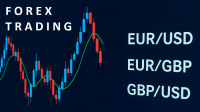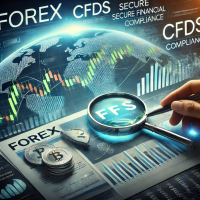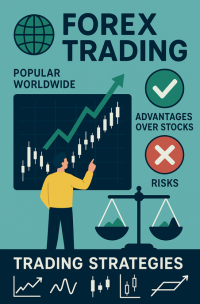In this article, we will analyze forex trading signals, their types, advantages, and associated risks.
Types of Forex Trading Signals
Forex signals can be broadly classified into two categories: manual and automated signals.
- Manual Signals: These signals are generated by experienced traders or financial analysts based on thorough market research, fundamental analysis, and technical indicators. Traders who rely on manual signals often use chart patterns, economic reports, and geopolitical developments to make informed decisions. The human element in manual signals allows for flexibility and strategic decision-making based on market sentiment.
- Automated Signals: These are generated by trading bots or algorithmic systems that analyze market data using predefined technical indicators. Automated signals eliminate human emotions from trading and can execute trades with high precision and speed. While they can be highly effective, they may lack the ability to adapt to sudden market changes caused by unexpected economic or political events.
Components of a Forex Signal
A typical forex trading signal includes the following elements:
- Currency Pair: Specifies which forex pair the signal applies to, such as EUR/USD or GBP/JPY.
- Trade Direction: Indicates whether to buy or sell a particular currency pair.
- Entry Price: The suggested price at which to enter the trade.
- Stop Loss (SL): A predefined price level at which the trade will be closed to prevent excessive losses.
- Take Profit (TP): The target price level where the trade will be closed to secure profits.
- Timeframe: Defines whether the trade is meant for short-term, medium-term, or long-term trading.
Sources of Forex Trading Signals
Forex trading signals can be obtained from various sources:
- Signal Providers: Some professional traders or financial institutions offer subscription-based services that provide trading signals.
- Forex Brokers: Many brokers provide signals as part of their trading tools or premium services.
- Trading Platforms: MetaTrader (MT4/MT5) and other trading platforms integrate signal services for traders.
- Automated Trading Bots: AI-driven or algorithmic trading software that generates and executes trades based on preset rules.
Advantages of Using Forex Signals
Forex signals offer several benefits to traders, especially those who lack experience or time for market analysis:
- Saves Time: Traders receive ready-made trade setups without conducting extensive research.
- Reduces Emotional Trading: Following structured signals prevents impulsive trading decisions.
- Improves Trading Discipline: Adhering to signals helps maintain a consistent trading strategy.
- Provides Learning Opportunities: Beginners can learn market strategies by analyzing professional signals.
Risks and Considerations
Despite their benefits, forex signals are not foolproof and come with certain risks:
- Accuracy is Not Guaranteed: No trading signal can predict market movements with 100% accuracy.
- Market Volatility: Unexpected economic or geopolitical events can render signals ineffective.
- Reliability of Providers: Some signal services may be scams or provide low-quality signals.
- Over-Reliance on Signals: Depending too much on signals without understanding market conditions can be risky.
Conclusion
Forex trading signals can be a valuable tool for traders, offering strategic insights into potential market movements. However, traders should exercise caution when selecting signal providers and always combine signals with their own market research. A balanced approach that integrates both signals and personal analysis can lead to more informed trading decisions and better risk management.








